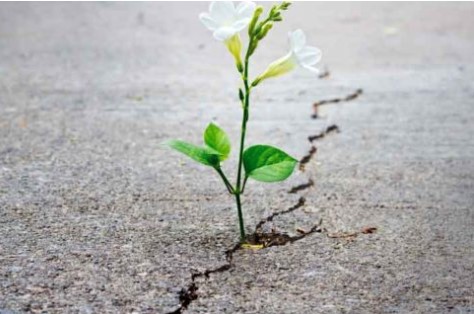
Feb 25, 2017
I had tea with a friend yesterday and he told me that the word “poison” was a word he had trouble with in my writing. I said, yes, it’s a hard word, a harsh word, but that I had used it consciously. The more I think about it though, the more depth I’ve encountered with it, and the consciousness I thought I had with the use of this word has been questioned and deepened.
Michael is being poisoned, and it’s a word we both use. It dissolves any sense of denial that we might have about what is happening, about the reality of this treatment he is undergoing. But as my friend said, it is also the poison that heals. And that is also the truth.
I’m not ungrateful for this treatment. Without it, Michael would be dead within the next several months. I’m also not ungrateful to the people who give us these treatments. They work hard and they are saving lives, and by and large, they are truly dedicated and caring.
But it’s such a primitive way of healing, this poison we consume. I remember going to an event at which Bill Moyers was present because he wanted to use the work for his series on healing. The presentation was about cancers and the way we heal them. The refrain of the song throughout the piece was “Cut, poison, burn!” and the woman who sang this piece performed it with anger and intensity.
It really struck me at the time, and it strikes me still. It’s all we’ve got, this cutting, poisoning, and burning our way through diseased bodies. This is the way Western medicine works right now, and we pay a high price for this healing.
Michael and I have spent most of our adult lives studying and using healing methods that are gentle and in alignment with nature. We have used alternative medicine as ancillary treatment for all kinds of illnesses, including cancer. We know of people who’ve chosen to pursue nothing but alternative treatment for cancer, and we know of several of those who have died. We also know the stories of those who have healed through diet, herbs, energy medicine, and meditation alone.
So we come to Michael’s treatment with a huge load of ambivalence. There are no alternative treatments for Amyloidosis so there doesn’t seem to be any way around our current path. But it’s hard. We believe so deeply in healing from that other realm, from the realm of energy and intention, from the realm of Spirit, that to subject ourselves to this system is difficult and disturbing.
And it does feel like a subjugation, a surrendering of ourselves, to a system that doesn’t understand us or our underlying ambivalence. How can it? It’s built around a method of treatment that gives little credence to diet or herbs or energy fields or any of the methods that we’ve seen work. It’s impersonal and lacks the individualized attention that is one of the hallmarks of alternative medicine. We are just a cog in a giant machine that at its base, cannot care for us in any other way. There are simply too many people to treat and too little time.
Now we’re starting to see the side effects of these “poisons that heal.” Michael is very tired, much more tired than he’s been before, and he can’t seem to sleep well enough to feel better. Even on the few nights when he does sleep well, it’s not enough to allay his underlying fatigue. His eyes look sick. They are red and swollen and they itch and bruise easily. His skin tears with the slightest rubbing against a harsh surface. He still can’t eat much of anything that doesn’t have a sauce around it, something to make it easy to chew and swallow.
In spite of this, Michael and I spend a fair amount of time every day meditating on health and healing. It is what we can do, what anyone can do, to help themselves heal. It brings the light of Spirit into a process that could lack that light without our conscious intentions. And it allows us to hope.
My friend reminded me of a quote from Meher Baba who exhorted his followers to “have hope,” and I found my ambivalence again. Though hope can be the perfect support for any endeavor, it can also bring an influx of desire and wanting with it. And when that kind of hope gets frustrated it leads to anger, fear, and despair.
So I’ve been careful in my hoping, and I think that is exactly what Meher Baba would have supported. As my friend writes to me today, “It is not ‘blind hope’ (like ‘blind faith’) or ‘grasping/craving hope’ that he is advocating, but a hope informed by the reality of grace and mercy.”
I do hope, we both hope, but we hope knowing that we have no control over the outcome of our hoping, that things may turn out very differently from what we hope. And knowing this, with full acceptance, we surrender to reality just as it is, over and over again, trusting that the larger plan of Spirit will bring us to exactly the place we are supposed to be.